





“Courses in the humanities ... are vital, because they stretch your imagination and challenge your mind to become more responsive, more critical, bigger.”
—MARTHA NUSSBAUM






“Courses in the humanities ... are vital, because they stretch your imagination and challenge your mind to become more responsive, more critical, bigger.”
—MARTHA NUSSBAUMOur Mission ....................................................................................................................................................... 2
Staff and Advisory Board 3
Director’s Letter............................................................................................................................................... 4
Faculty and Doctoral Fellows ......................................................................................................................... 6
Speaker Series: Transforming Institutions ................................................................................................... 8
Conversations in the Neighborhood: Let’s Talk about Music 9
Programs in Public Humanities Grants ....................................................................................................... 10
Humanities Advocacy Day ........................................................................................................................... 10
Humanities Engagement Scholars ............................................................................................................... 11
Humanities Writing Retreat........................................................................................................................... 12
Books Published with Publication Subvention 13
Speaker Workshop Grants and Library Enhancement Grant.................................................................... 14
Podcast: Under Review .................................................................................................................................. 16
Strength in Numbers ...................................................................................................................................... 17
On the Horizon .............................................................................................................................................. 18
Support the Center for the Humanities and the Public Sphere 20
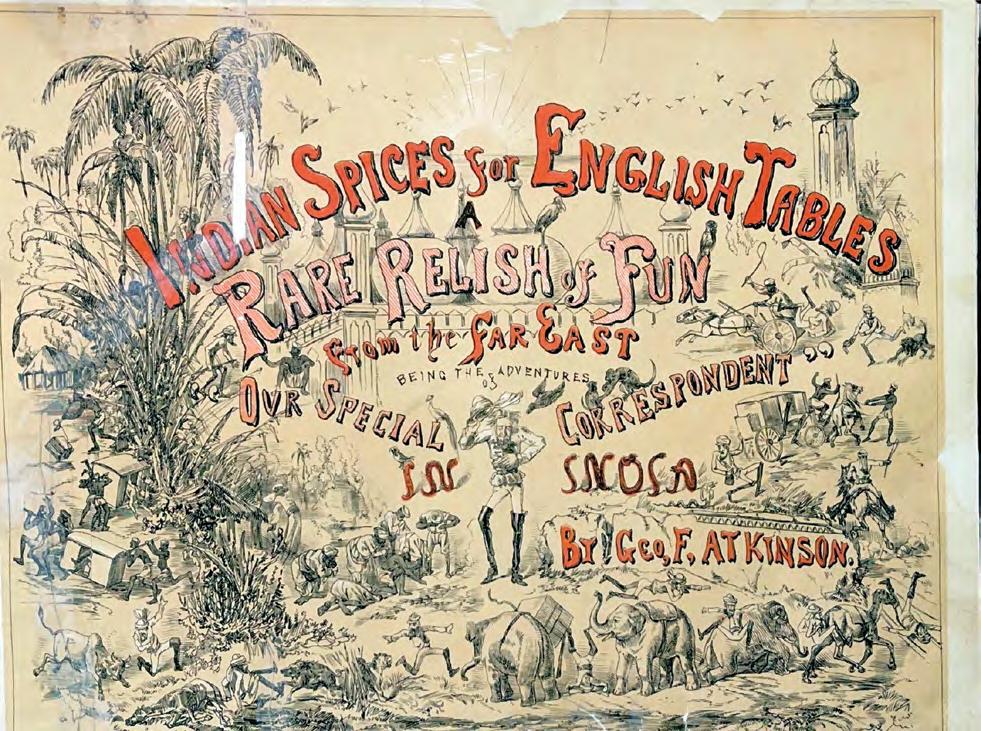
1To facilitate and promote the research programs of humanities scholars at the University of Florida (UF);
2To provide an intellectual space and a physical location within UF and the College of Liberal Arts and Sciences (CLAS) for critical and collaborative discussions of the humanities that reach across and beyond individual disciplines; and;
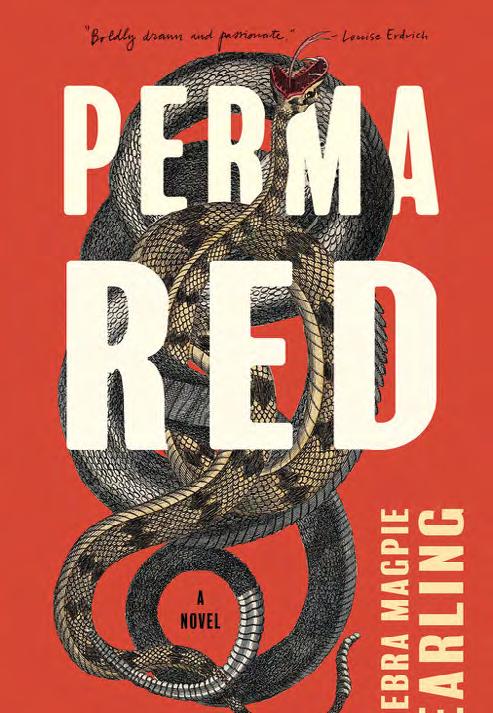
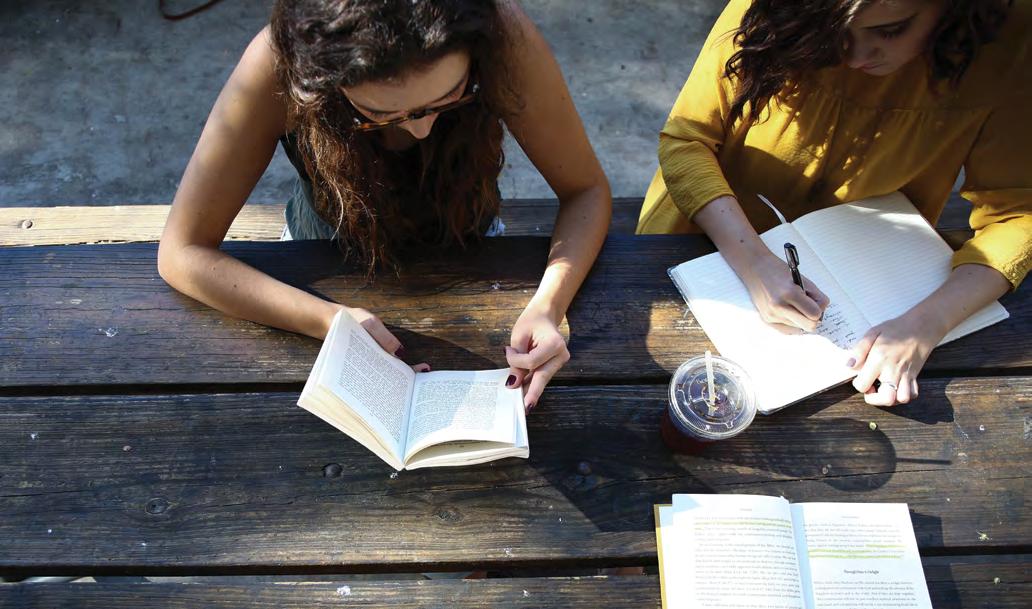

3To provide a place for outreach to the community in which we live and teach. Building on the work of individual departments, the Center for the Humanities and the Public Sphere (CHPS) emphasizes collaboration and critical discussion as its basic program models.
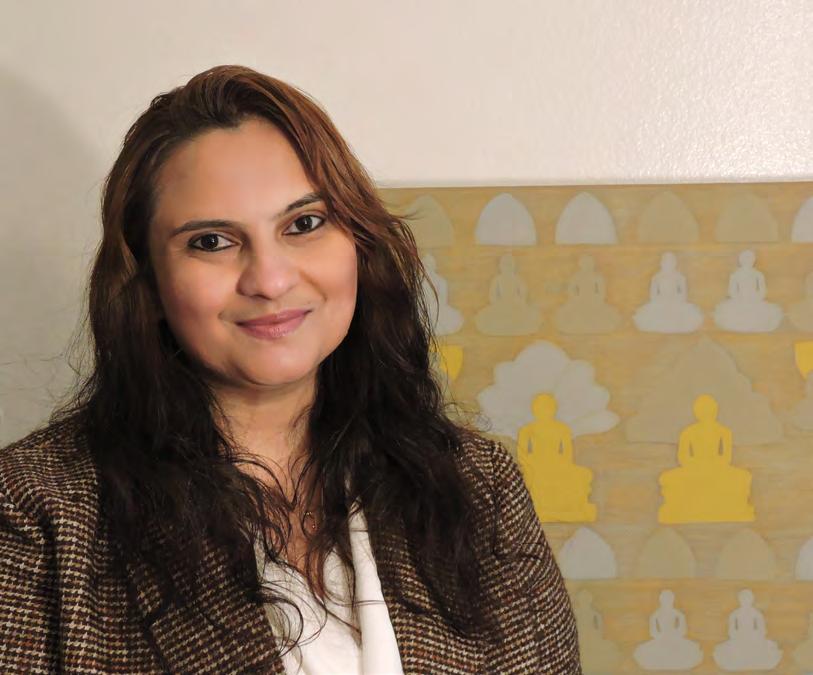
Barbara Mennel
Director and Rothman Chair; Professor of Film Studies and German Studies
Anirban Gupta-Nigam
Associate Director
Sara Agnelli
Assistant Director for Graduate Engagement
Alexandra Cenatus
Assistant Director for Programming and Public Engagement (2019-2022)
Lauren Burrell Cox
Humanities Program Manager
Rhonda Black Office Manager
Tyler Klatt
Program Coordinator; Ph.D. Candidate, Department of English
THE ADVISORY BOARD, 2021-22
Jamie Ahlberg, Philosophy
Hélène Blondeau, Languages, Literatures, and Cultures, Linguistics
Nina Caputo, History
M. Elizabeth Ginway, Spanish and Portuguese Studies
Ashley Jones, Art History, College of the Arts
Roger Maioli dos Santos, English
Ali Mian, Religion
Chris Smith, Languages, Literatures, and Cultures
Velvet Yates, Classics
AD-HOC GRADUATE STUDIES COMMITTEE, 2021-22
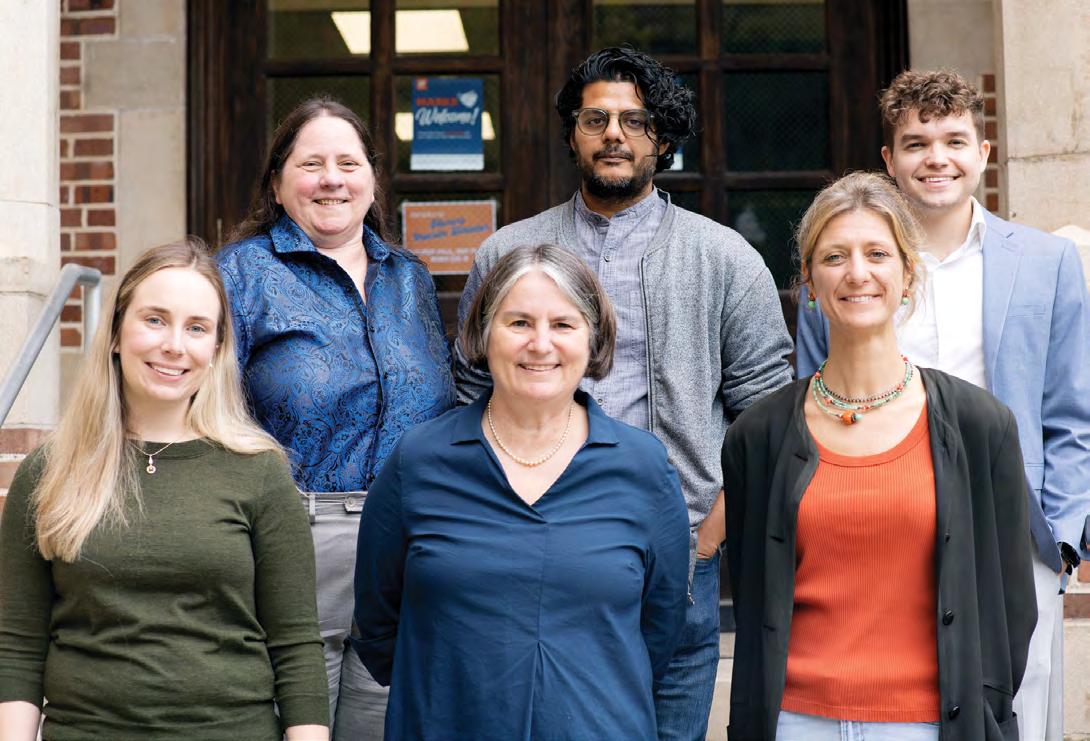
Plato Smith, George Smathers Libraries
Heather Vrana, History
Laura Gonzales, English
Alexandra Cenatus, Lauren Burrell Cox, Tyler Klatt, Barbara Mennel
AD-HOC COMMITTEE ON ARTIFICIAL INTELLIGENCE, 2021-22
Youssef Haddad, Languages, Literatures, and Cultures
Ali Mian, Religion
Ken Sassaman, Anthropology
The Center for the Humanities and the Public Sphere looks back on yet another dynamic and productive year despite the ongoing challenges of the pandemic. The humanities center engaged audiences in multiple formats, from webinars to in-person events outdoors. We tightened our collaboration with other humanities institutions across the United States, including the National Humanities Center, the University of California Humanities Research Institute, the Willson Center for Humanities and Arts at the University of Georgia, and the Jackman Humanities Institute at the University of Toronto.
Back at home, we engaged with faculty, students, and community members in virtual and live conversations about music. The second annual installment of our public engagement series, Conversations in the Neighborhood, organized in collaboration with the City of Gainesville, attracted over two-hundred audience members. The six events included workshops, panels, and conversations among scholars, students, practitioners, filmmakers, musicians, and members of the public. Dedicated to humanities’ approaches to music, the series posed questions about Native American identity, Latinx musical spaces, transnational music, archives, and popular culture of the Asian diaspora.
Close to 350 audience members attended the Speaker Series “Transforming Institutions,” which continued the multiyear series “Rethinking the Public Sphere.” Three speakers presented humanities perspectives on public institutions, from medicine and law to monuments and academia. Michele Bratcher Goodwin (University of California, Irvine), Paul M. Farber (Monument Lab), and Joy Connolly (American Council of Learned Societies) delivered public lectures and conducted workshops with faculty members. During the pandemic, these virtual interdisciplinary events brought together faculty members who had not yet met, particularly those across campus. For example, Law, Women’s Studies, and Biology professors gathered for the conversation with Goodwin; faculty members from Museum Studies, History,
and Historical Preservation met with Farber; and humanities graduate coordinators, chairs, and administrators engaged with Connolly. The series was co-sponsored by 15 units of a wide disciplinary ranging from the UF Levin College of Law to the One Health Center for Excellence.
CHPS awarded one grant to support a Library Enhancement Program in the Humanities, four grants for Speaker Series and Workshops in the Humanities, eight Rothman Faculty Summer Fellowships in the Humanities, five Programs in the Public Humanities, one Team-Teaching Award, and seven Publication Subventions. The Humanities Center awarded two Tedder Family and eight Rothman Doctoral Fellowships in the Humanities to graduate students, two National Humanities Center Virtual Podcasting Winter Institute for Ph.D. students, and one summer residency for a Ph.D. student at the National Humanities Center focused on using technology in humanities teaching.
In 2021-22, cosponsored and grant-supported events reached more than 2,000 audience members, while events organized and funded by Center staff reached over 800 attendees. These audience members hailed from around the globe, the country, and campus.
In the academic year 2022-23, the Speaker Series continues the multi-year topic: Rethinking the Public Sphere: Part IV, with a focus on Public Humanities. In September 2022, Brent Leggs (Executive Director, African American Cultural Heritage Action Fund) lectured on preserving African American cultural heritage at UF and engaged with community leaders at the Cotton Club Museum and Cultural Center. The following month, Dr. Barry Lam (Philosophy, University of California, Riverside) spoke on the theme of discretion in law, philosophy, and policy. In addition, he engaged in a conversation about podcasts with members of the faculty, communications, and other support services at UF. The series will conclude with a lecture by Nicholas Allen
(Director, Wilsson Center, University of Georgia) on “Public Humanities as Enviornmental Humanities.” Together, these three talks consider the impact of the humanities in the public.
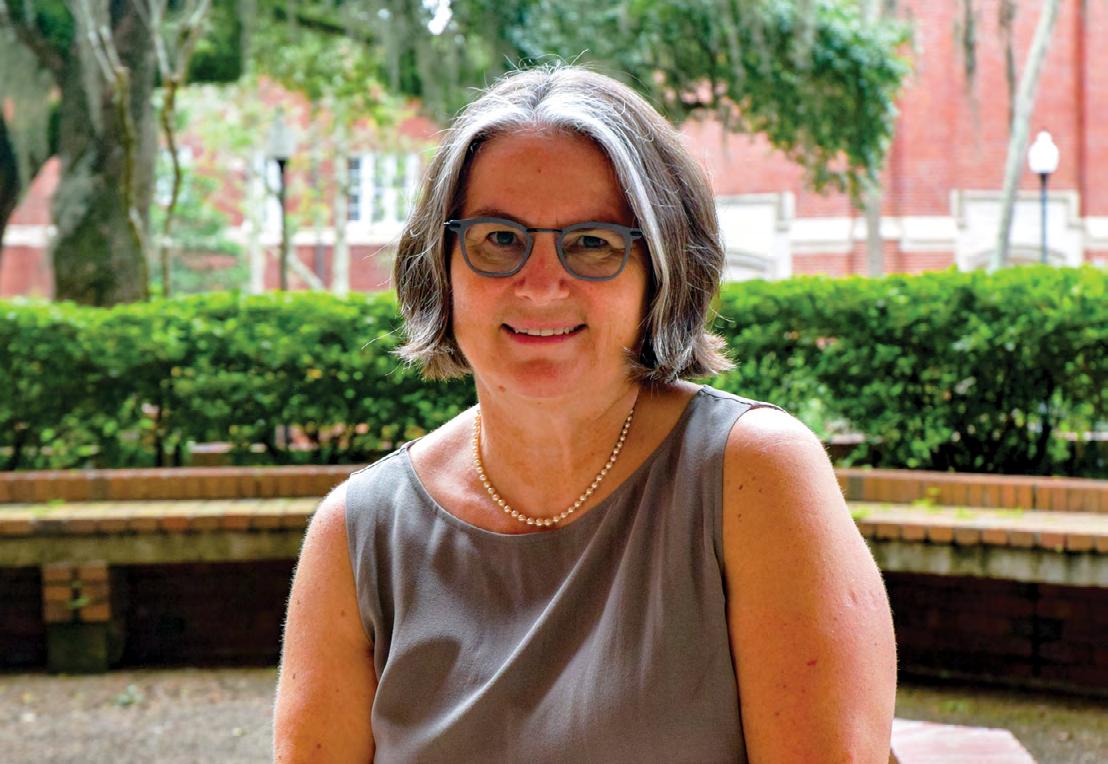
In fall 2022, the Center for the Humanities and the Public Sphere is welcoming two new staff members who will serve humanities faculty and graduate students in important ways. Dr. Anirban Gupta-Nigam comes to UF from the University of California Humanities Research Institute where he was a postdoctoral scholar conducting research and managing a Mellon-funded initiative on the vision of the liberal arts for the 21st century. At UF, Dr. Gupta-Nigam will focus especially on supporting faculty member with grant applications in the humanities.
Dr. Gupta-Nigam is joined by Dr. Sara Agnelli who has taken up the position of Assistant Director for Graduate Engagement. With a PhD in Classics, Dr. Agnelli is developing programs to support graduate students in expanding their perspectives on career diversity, including preparation for the academic job-market. Dr. Agnelli is preparing a public humanities graduate institute and public humanities internships for graduate students in summer 2023.
We invite graduate students and faculty members to avail themselves of our services.
We also continue our Humanities Engagement Scholars Program, which aims to engage undergraduate students across the humanities.
We hope to welcome you to our Synergies series during the academic year 2022-23 on zoom. The series showcases all the outstanding work that doctoral students and faculty have completed over the summer of 2022.
With gratitude to our supporters and collaborators,
Rothman Chair and Director Center for the Humanities and the Public Sphere

The Rothman and Tedder Doctoral Fellowships provide funding for doctoral students to conduct research for their dissertation. Despite the challenges of the pandemic, doctoral students made significant progress on critical topics. We highlight two international students whose work illuminate food and religion in India.
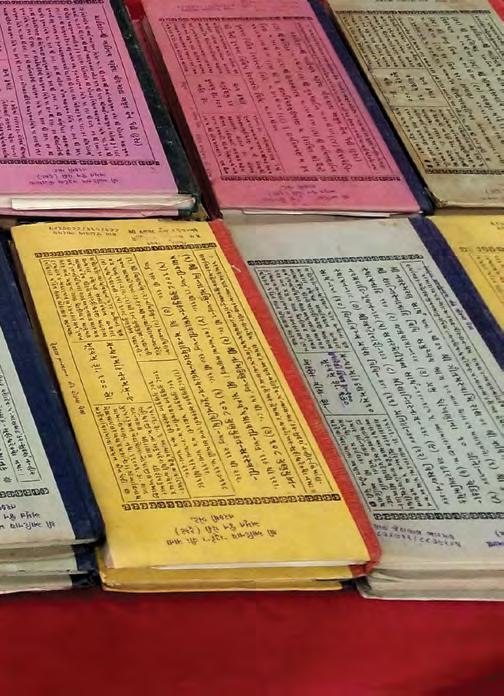
Meghna Sapui (English), Tedder Family Doctoral Fellow “Edible Empire: Eating in Indian Anglophone Literature, 1820-1910”
Meghna Sapui is a Ph.D. candidate in English at the University of Florida who is writing a dissertation on food cultures and eating practices in Indian Anglophone literature from 1820 to 1910.
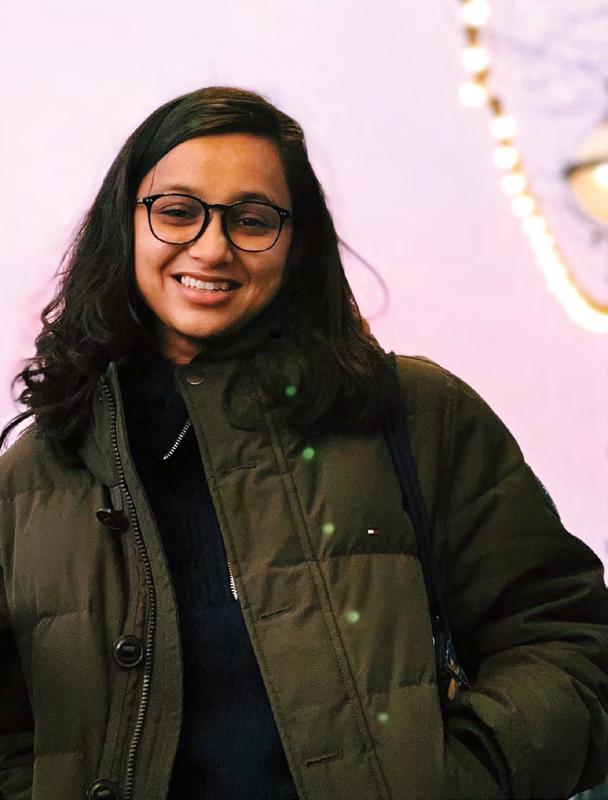
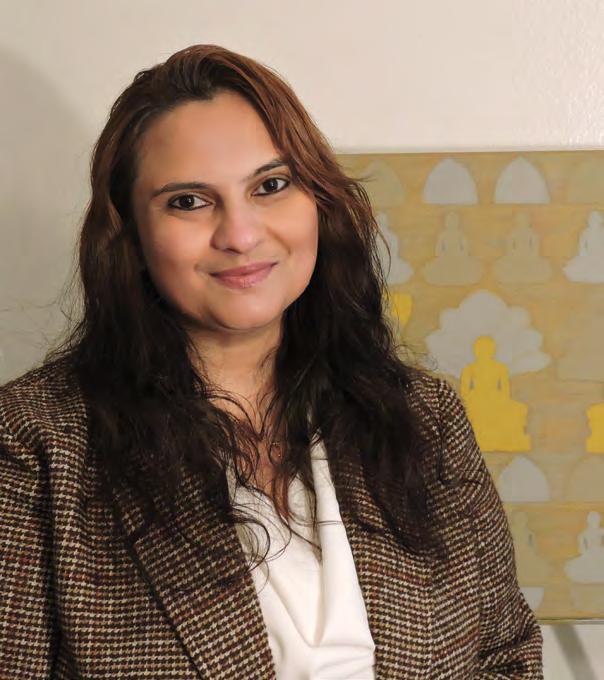
The Tedder Family Doctoral Fellowship provided Sapui with the funds to undertake archival work at the British Library, where she studied Famine Maps and India Office Records Army Lists. She had the opportunity to explore rare books, including Captain George Francklin Atkinson’s Indian Spices for English Tables. The British Library is one of only a handful of places in the world to hold the 1860 print version of this book. Based on her research, Sapui argues that we need to understand culinary culture as it shapes colonial power, and even now, sustains in India.
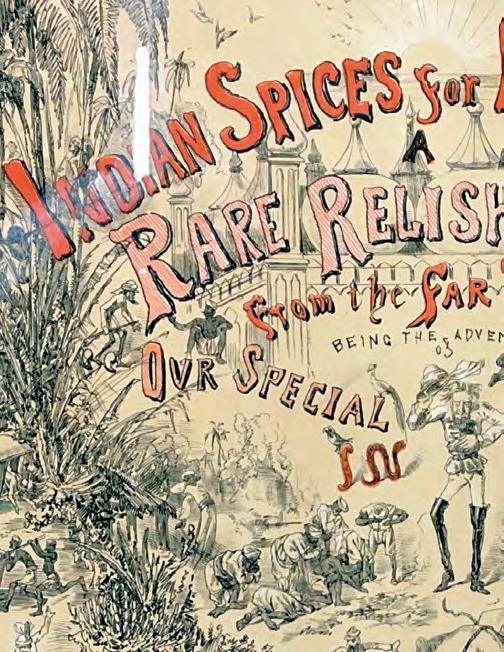
Venu Mehta (Religion), Rothman Doctoral Fellow, Bhagwan Chandraprabhu Postdoctoral Fellow in Jain Studies, Claremont School of Theology, Assistant Professor of Comparative Religions “The Making of a Jaina Divinity: Devotion for the Jaina Goddess Padmāvatī among the Śwetāmbar Mūrtipūjak in Gujarat”
Venu Mehta studies the emergence of devotional practices around the Jain goddess, Padmāvatī.
As a Rothman Doctoral fellowship recipient, Mehta connected with resources in India that included Jain temples, repositories, and local libraries. Through this, she collected published and unpublished materials, including narrative and eulogistic literature, liturgical texts, religious writings on the importance of the goddess, and devotional songs. Acquiring this information demonstrated the emergence and organization of the goddess in the Jains’ religious and social life in Gujarat. As no other study has approached this focus in the Gujarati language, Mehta’s project will advance the field of regional forms of bhakti (devotion) and goddesses in religious traditions such as Jainism.
Konstantinos Alexakis, Landscape Architecture The Plot of Whately’s Observations
Rodrigo Borges, Philosophy Knowledge After Gettier: The Place of Knowledge in Contemporary Philosophy
Rachel Gordan, Religion Becoming The Y: The Story of the 92nd Street Young Men’s Hebrew Association
Paul Gutierrez, Political Science Incorporating America, 1763-1823: The Settler Colonial and Revolutionary Origins of the Modern Corporation in America
Fernanda Bretones Lane, History Shores of Asylum: Fugitivity, Empire, and Slavery in the Colonial Caribbean
Anton Matytsin, History
A History of History: The Académie des inscriptions and the Remaking of the Past
Paola Uparela, Spanish Well-Being for the (Re)production of the Indigenous Population: Las Casas’s Remedies (1516) in Guaman Poma’s Good Government (1615)
Velvet Yates, Classics Learning to Carve an Ancient Greek Sculpture: The 3-Caliper Method
2022-23
Suvendu Ghatak, English Malarial Modernity: Colonialism and the Politics of Health in Modern South Asia
Katherine McNamara, Environmental and Global Health People, Plants, and Pandemics: How Past and Present Crises Shape the Fate of the ‘Andean Wonder Drug’
2022-23 ROTHMAN DOCTORAL FELLOWS
Belay Alem, Anthropology
Heirs’ Property in African American Communities in Alachua County, Florida: Inheritance, Taxation and Security
Tim Blanton, History
When Main Street Met Wall Street: Bucket Shops and the Rise of the American Retail Investor
Erika Davis, Teaching and Learning Exploring Latinx Educational Advocacy and City Politics in the New Latinx Diaspora
Zheyuan Deng, Religion
The Spatial Histories of Ahmadiyya in Nigeria
Abigail Lindo, Music
Sensing Azorean Autonomous Identity: A Feminist Ethnography of São Miguel’s Sonic Culture
Mandy Moore, English
Just Fandom Things: A New Materialist Approach to Fandom Rhetoric
Rachel Polinsky, Art History
“Fair-Ankled” Korai: Feet, Foot, Footwear, and a Reconsideration of Stylistic Progression in the Art of Ancient Greece
Yekatit Tsehayu, Religion
Intersectional Agency of Contemporary Revivalist Muslim Women in Ethiopia
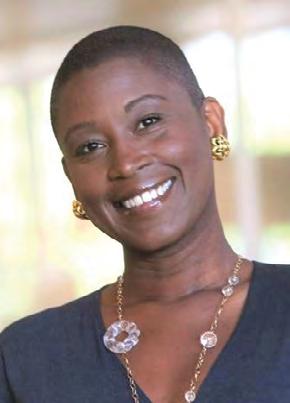
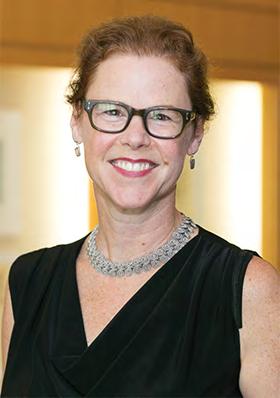
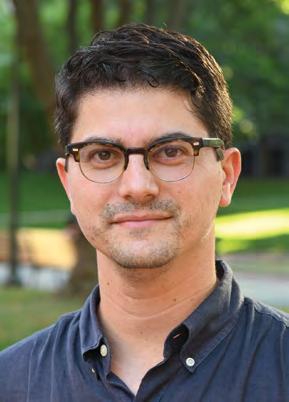

During the academic year 2021-22, the Center for the Humanities and the Public Sphere continued its multi-year series entitled “Rethinking the Public Sphere,” turning its attention to the ways in which the humanities approach institutions at the intersections of law and urban planning. The series’ final talk focused on the institution of the university itself, in particular its graduate education. Each speaker in the series also offered a workshop for specialists at the University of Florida. All talks were conducted as webinars and all workshops took place virtually. During the pandemic, these workshops created connections across disciplinary boundaries and ways to engage in interdisciplinary conversations.
Michele Bratcher Goodwin (Chancellor’s Professor of Law; Director, Center for Biotechnology and Global Health Policy, University of California, Irvine) addressed how medical care and the law intersect in the criminalization of motherhood. She focused on the surveillance of the conduct of poor and minority women as mothers. In addition to a forceful and well-attended webinar, she discussed current legal developments that pertain to questions of pregnancy in her virtual workshop. UF faculty members from the Levin College of Law, the Department for Gender, Sexuality, and Women’s Studies, Department of Biology, Department of English, History, Department of Anthropology, African American Studies Program, and Department of Sociology engaged in passionate interdisciplinary conversation.
Paul M. Farber (Director of Monument Lab), presented on the National Monument Audit, produced by Monument Lab in partnership with the Mellon Foundation. Monument Lab’s research team spent
a year collecting data on roughly half a million records of historic properties with a focus on 50,000 conventional monuments. Farber explained how the National Monument Audit provides insight into the dynamics that shape our monument landscape to pose questions about public memory. A group of scholars from UF’s Department of Classics, Historic Preservation Program, Department of History, School of Art and Art History, School of Architecture, Department of Urban and Regional Planning, and Museum Studies program met with Farber to discuss the ways in which institutions respond to such knowledge and imagine a different and more accurate representation of citizens in the public sphere.
Joy Connolly (President of the American Council of Learned Societies, ACLS) presented a lecture on the current challenges facing humanities and the myriad ways that universities can counter those trends. From scholarly collaboration and revision of graduate education to an embrace of public humanities, she mobilized a tour de force of concepts to strengthen and support the humanities in 21st-century institutions of higher education. After her lecture, Connolly
led a workshop that focused on rethinking graduate education in the humanities. Members of the administration, graduate coordinators and chairs of humanities units, members of the graduate school, and graduate students were inspired by programs that the ACLS is undertaking to revamp graduate education and prepare humanities graduate students for an expansive job market.
The annual speaker series was co-sponsored by the Center for the Humanities and the Public Sphere (Rothman Endowment); College of Liberal Arts and Sciences; UF Research; African American Studies Program; Bob Graham Center for Public Service; Center for Arts, Migration, and Entrepreneurship; Department for Gender, Sexuality, and Women’s Studies; Cotton Club Museum and Cultural Center; Department of Biology; Department of Classics; Department of History; Department of Political Science; Department of Urban and Regional Planning; George A. Smathers Library; Levin College of Law; and the One Health Center of Excellence.
In the second series of Conversations in the Neighborhood, music was chosen as an entry point to the humanities, offering an effective medium to address complex themes, including identity, migration, and culture. The theme of music enabled speakers in the six-part series to draw parallels between genres and locations for their audiences.
The series began with a workshop led by Kimberly Williams, a Ph.D. student in English, and Dr. Victor Del Hierro (English), who discussed the cultural importance of Verzuz - a webcast series created by Timbaland and Swizz Beatz. During Verzuz events, two musicians showcase their musical discographies in a three-hour session; notable battles that trended on social media include Teddy Riley and Babyface; Brandy and Monica; and Bounty Killer and Beenie Man. In the session, Williams and Del Hierro delved into the importance of Black spaces, such as Verzuz, and their cultural meanings.
Some of the events centered on the idea of positionality and creation. In Latinx Musical Spaces: Rap Seminar, Roberto Santos shared how he uses digital tools to analyze songs and samples of artists. In the context of the humanities, Santos offered possibilities on how scholars can collaborate with software engineers and artists. In Sites of Transformation: Songs, Native Identity, and Healing, artists Renata Yazzie, Lyla June, and Sacramento Knoxx discussed their
creative processes and musical influences. A particularly striking aspect of the discussion was June’s reflection on how her song “All Nations Rise” became a repository for indigenous communities to discuss and share their thoughts on belonging.
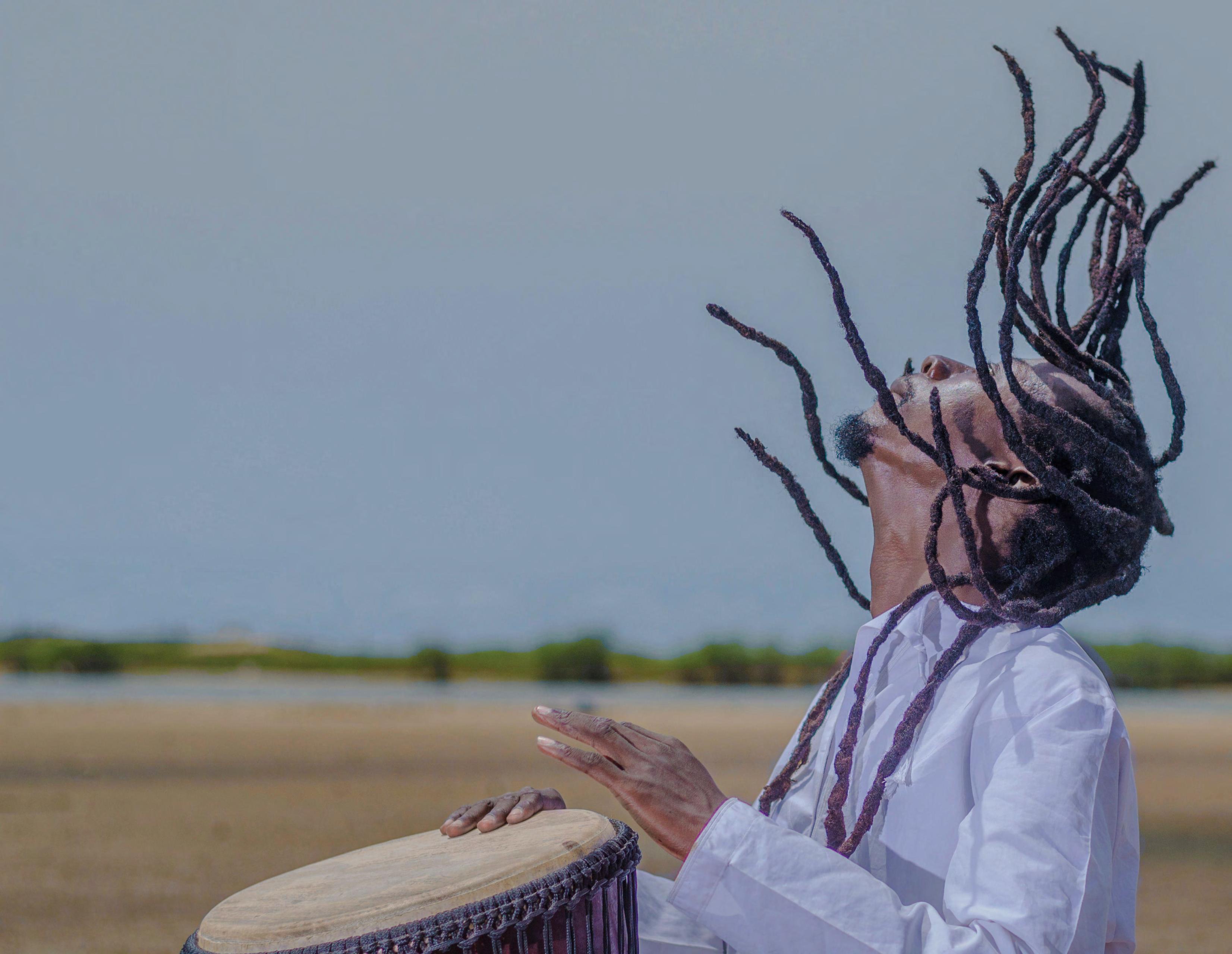
The series featured a virtual and in-person event in celebration of Black History Month. The virtual event Love Songs within Africa and the African Diaspora explored ways Black people have expressed love to one another, their ancestors, and themselves, moving away from stereotypical views of Blackness. Black Love: Creativity, Expressions, and its Gifts, held in partnership with A. Quinn Jones Museum, celebrated Black love through an exhibit on popular Black Literature curated by Cristovão Nwachukwu; music by Geexella; and poetry by Terri Bailey and Stanley Richardson. The event also featured food samples from two local caterers, Flavorful and Ivoire Delice & Market.
Simrun Waghray, a former Center for Humanities and the Public Sphere undergraduate intern, designed In Asia: Transnational Music, Archives, and Popular Culture, the final segment of the series. The event examined the connection between Asia, identity and music. In a riveting discussion, Miki Kaneda (Boston University), Tao Leigh Goffe (Cornell University), Christine Yano (University of Hawai’i) and Ivy Chen (UF Museum Studies)
explored music’s role in establishing multiplicity, shaping people’s identities, and preserving diasporic communities.
Conversations in the Neighborhood: Let’s Talk about Music offered rich programming that allowed more than 250 attendees to explore deeply resonating ideas.
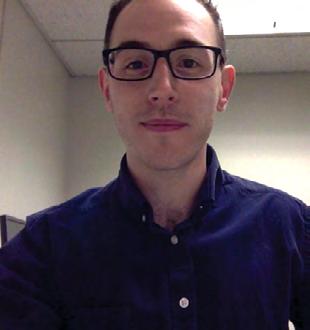
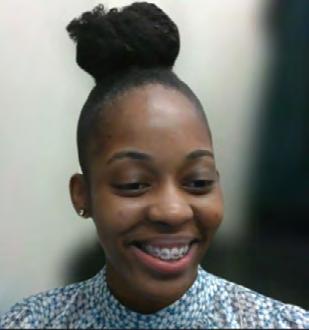
The Center for Humanities and the Public Sphere’s Public Humanities Grants continue to demonstrate how humanities can collaborate with communities.
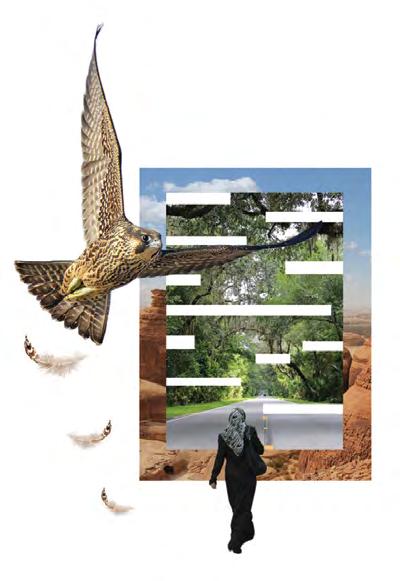
Decolonizing the Curriculum: Black History and Experiences in Florida through an Artsbased Curriculum to Improve Racial Inequities for K-12 Teachers and Students established a partnership between Dr. David A. Canton (UF African American Studies Program) and Dr. Rebekah Cordova (All Y’all Social Justice Education Collective). The grant supported two workshops with Alachua County teachers, programming at a Harn Museum of Art Family Night, and three community listening events organized by Dr. Amanda Concha-Holmes.
Designing a Multimedia Language Access Handbook for North Central Florida a collaboration between Dr. Laura Gonzales
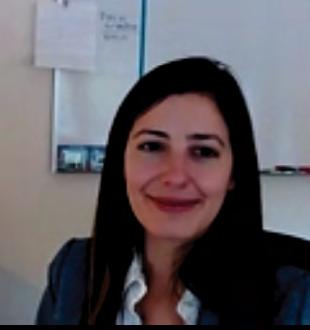
(UF Department of English) and Robin Lewy (Rural Women’s Health Project). The project highlighted the language diversity that exists in North Central Florida while providing valuable resources to agencies and organizations that support non-English speakers.
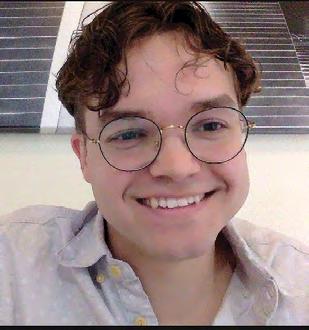
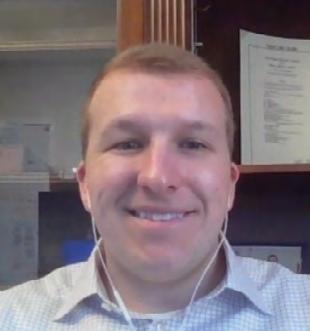
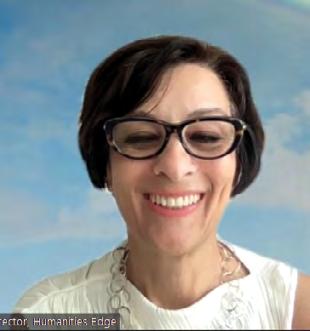
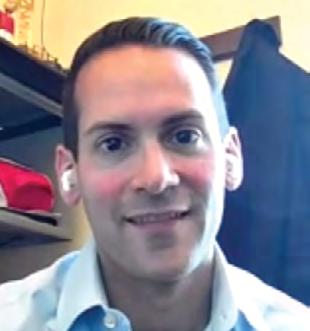
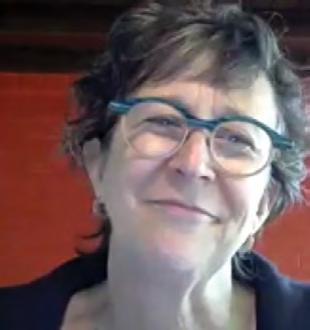
Lastly, Emerging Voices by Victoria Grant (Hispanic Student Association) and Ericka Ghersi (Latina Women’s League) provided free English language classes and citizenship preparation courses for the Gainesville community, ensuring the continuous education of multilingual residents.
In collaboration with Valentina Sierra Niño, a Fulbright recipient and current MFA student in Design and Visual Communications at UF, we used community feedback to design postcards in Spanish, Haitian Creole, Mandarin/ Chinese, Aymara, and Arabic. Valentina designed and printed postcards that highlight the diversity of languages in North Central Florida. One of the most memorable aspects of this project was interacting with community members at Harn Museum Nights as part of the Gainesville Immigrant Neighbor Inclusion Initiative. Valentina, Robin, and I are looking forward to hosting an exhibit at the Matheson History Museum.
— Laura Gonzales, UF Department of English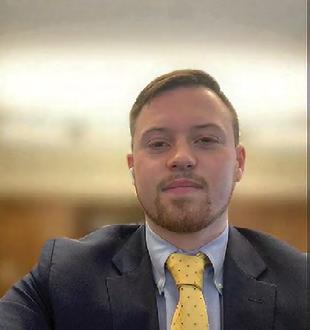
Every year, the National Humanities Alliance (NHA) organizes a nationwide coalition that advocates for federal funding of the humanities, known as Humanities Advocacy Day. In 2022, the Center for the Humanities and the Public Sphere sponsored three graduate students, as well as administrators, faculty, and staff working in the humanities, to take part in this experience. This year’s multi-part virtual event included training sessions and workshops on advocacy best practices, as well as the opportunity to connect with faculty, graduate students, and staff from other universities to make the case for federal funding of the humanities across the United States. The small delegation met with staffers for Senators Rick Scott and Marco Rubio, Gainesville Congresswoman Kat Cammack and other politicians. This experience provided insight into the policies and pipelines that connect federal funding with campuses, local organizations, and programs in the city of Gainesville and the University of Florida, such as the National Endowment for the Humanities and the Title VI and Fulbright-Hays programs. Working with the NHA highlighted the importance of advocacy work for sustaining the humanities throughout Gainesville and the state of Florida.
In the fall of 2021, undergraduate students in the Humanities Engagement Scholars (HES) program shared their desire for support when applying for internships, jobs, and scholarships in order to be prepared for work outside of academia. During the 2021-2022 academic year, the program provided students with tools for their professional journeys. For example, Ready, Set, Resume Review: An Introduction to HES and a Resume Workshop with UF’s Career Connections Center focused on teaching students how to showcase their humanities skills on their resumes. This event highlighted the differences between a resume and a CV. HES also hosted a virtual discussion with UF’s Hispanic-Latinx Affairs PODEMOS program about Ashley Ford’s novel Somebody’s Daughter: A Memoir (2021). Many students related to the book’s themes of family and trauma.
HES programming extends far beyond curated events. As part of participation in the program, students complete courses in the humanities. They also attend and participate in the planning, preparation, and/or execution of virtual and in-person humanities events. Student Leah Rogers attended India: Anglophone Literature and Religion, one of the Center for Humanities
and Public Sphere’s Synergies series events. Rogers was fascinated by the ways in which Meghna Sapui (Ph.D. Candidate, English) and Venu Mehta (Ph.D. Candidate, Religion) associated food with an edible empire of cultural significance and considered how “certain foods and food groups are adopted and confronted with opposition.”
Several HES members participated in volunteer activities. Julianna Panton, for instance, helped organize the Blackness 360 series, sponsored by the UF Power Lab, a group focused on supporting student success through research, mentoring, and critical pedagogy, and the University of Florida Black Affairs. As part of Panton’s duties, she added Dr. Mandisa Haarhoff’s (University of Cape Town) biography to the Blackness 360 series’ registration page and handled correspondence with attendees and speakers.
Three HES students, Brian Marra (History), Isabella Kemp (International and German Studies) and Christine Taylor (English), were paired with graduate student mentors, Cristovão Nwachukwu (English), Noah Mullens (English), and Lucy Xie (Department for Gender, Sexuality, and Women’s Studies) according to their interests. The mentees
enjoyed the support they received from their mentors. Marra, for example, received helpful advice in revising his graduate school application. Mullens helped Kemp navigate the professional world while she was interning in Tallahassee, and Taylor received assistance from Xie in preparing her resume.
Working in the Center for the Humanities and the Public Sphere exposed interns from the Active Learning Program to professional skills, such as researching themes and speakers for programs, assisting with social media advertising, designing and moderating events. Designing a Multimedia Language Access Handbook for North Central Florida collaboration between Dr. Laura Gonzales (UF Department of English) and Robin Lewy (Rural Women’s Health Project) highlighted the language diversity that exists in North Central Florida while providing valuable resources to agencies and organizations that support non-English speakers. The Center for the Humanities and the Public Sphere celebrated the achievements of HES graduating students Alexander Kanfer, Julianna Panton, and Christine Taylor at the end of the 2021-22 academic year.
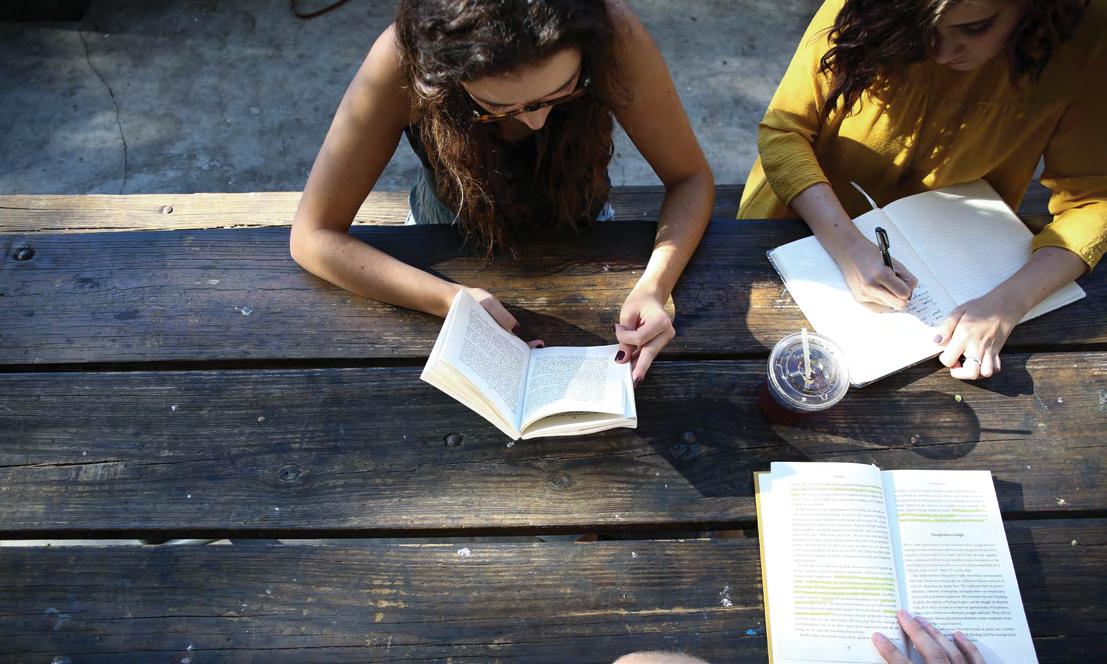
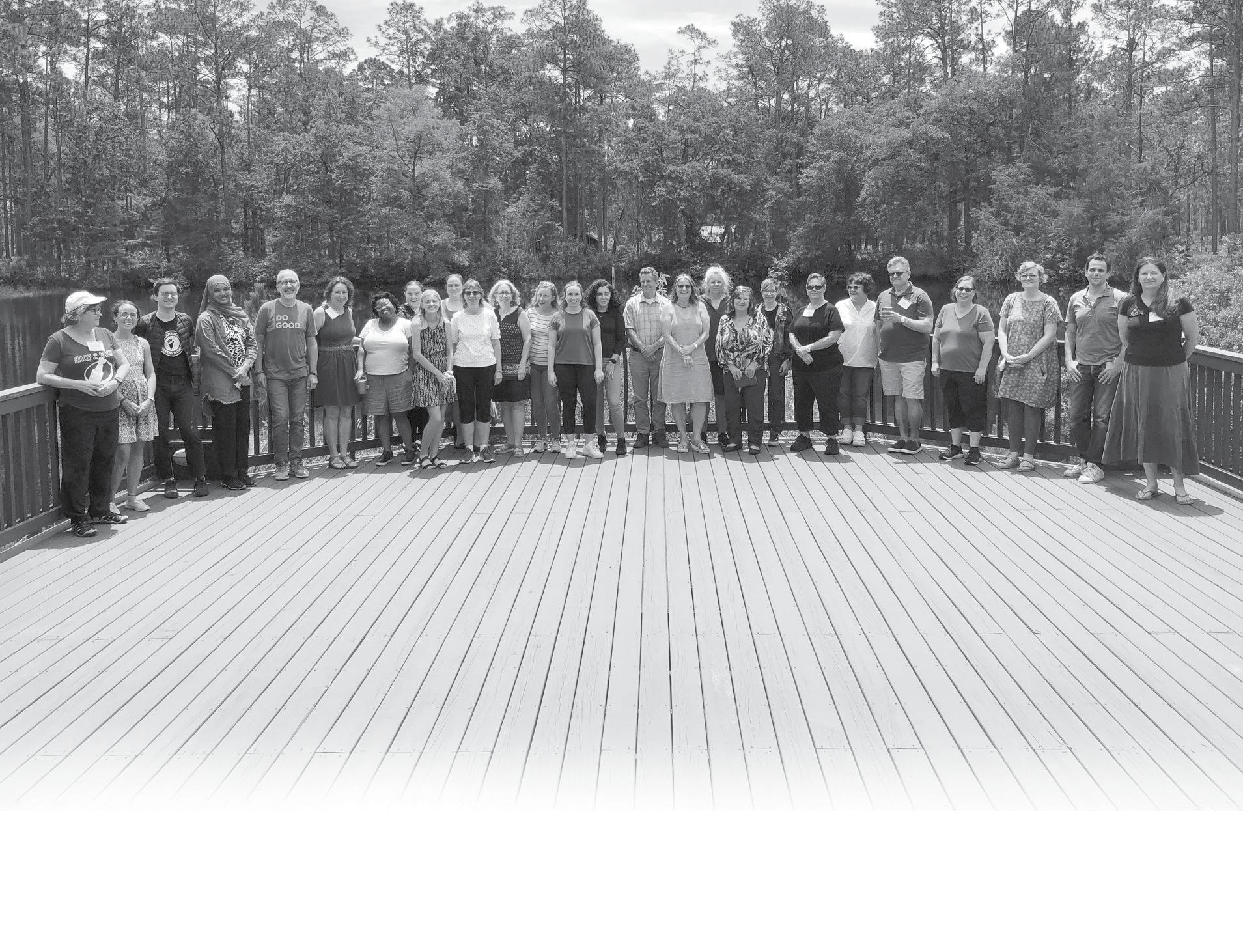
May 8-12, 2022
In the week after the spring semester 2022 ended and before Summer A began, 33 faculty members, staff, and doctoral students from the University of Florida gathered for a productive week of writing at the beautiful Austin Cary Forest Campus northeast of Gainesville. Funded by the College of Liberal Arts and Sciences and the Margaret and Robert Rothman Endowment, the Center for the Humanities and the Public Sphere offered five days of reorientation from teaching and service to research and writing in a calm, quiet, and beautiful setting. Faculty members advanced book manuscripts, drafted articles, and completed grant applications, while doctoral students worked on dissertations and essays. Daily catered lunches on a deck overlooking a lake fostered exchange and stimulated conversation about scholarship and projects in progress.
“The writing retreat provided me with the quiet space, resources, and time that I needed to complete the final chapter of my dissertation. Fueled by coffee and the delicious catered lunches, I was able to write over forty pages--a feat that felt impossible before the start of the week. After the isolation of the pandemic, it was wonderful to be part of a community of scholars and writers, and I enjoyed socializing with everyone during the daily lunch break. I also learned a lot from the book proposal workshop, which will undoubtedly benefit me as I graduate and move into the next stage of my career. I am very grateful to CHPS for this opportunity.”
Brianna Anderson, Ph.D., Former Ph.D. student, Department of English
“At the end of a busy semester, I find it difficult to rally my energy and focus on my writing. The summer writing retreat was exactly what I needed to reclaim my motivation. After a week, I caught up on my freelance writing deadlines and drafted articles that were later published in USA Today and Forbes. CHPS created a supportive community where participants could share space and ideas. I continue to treasure the colleagues and mentors I met during the writing retreat.”
Laken Brooks, Ph.D. student, Department of English
“Our project, ‘From Report to Court,’ examines how cases of sexual violence reported to law enforcement in Alachua County progress (or not) through the criminal justice system. During the annual writing retreat, we were able to work together to build a unified dataset from our analysis of Gainesville Police Department records, files from the State Attorney’s Office, and public records data from the Alachua County Clerk of the Court. The concentrated time together allowed us to prioritize the project and to develop a way to analyze our cases across agencies; we then used these analyses to give a talk on the project at a conference in June 2022.”
Alyssa Zucker, Ph.D., Professor and Vada A. Yeomans Chair of Women’s Studies
Maddy Coy, Ph.D., Assistant Professor, Department for Gender, Sexuality, and Women’s Studies
The Center for the Humanities and the Public Sphere continued to support humanities book publications with its publication subvention. In collaboration with the College of Liberal Arts and Sciences and the College of the Arts, seven publication subventions were awarded during the 2021-22 academic year. Since the last annual newsletter, five new books have been published.
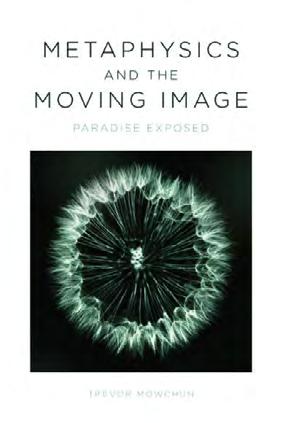
Rori Bloom (Languages, Literatures, and Cultures) published her monograph Making the Marvelous: Marie-Catherine d’Aulnoy, Henriette-Julie de Murat and the Literary Representation of the Decorative Arts with University of Nebraska Press in 2022. The book contributes to the fields of fairy tale studies, French literary studies, and studies of the decorative arts in France. The book moves away from thematic concerns often analyzed in women’s writing — love, marriage— to concentrate on the authors’ aesthetic sophistication and formal experimentation. It demonstrates that these authors’ works redefine the marvelous not as magical but as manmade in order to argue that their attitude toward the supernatural is skeptical and surprisingly modern.
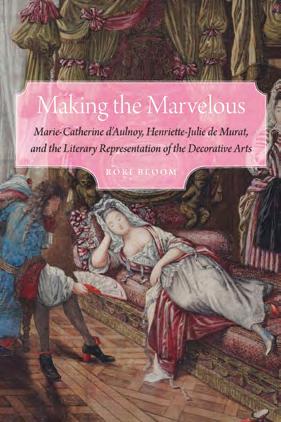
Laura Gonzales (English) published Designing Multilingual Experiences in Technical Communication with Utah State University Press in 2022. The book highlights the role that language diversity plays in global research collaboration. Through three case studies in various contexts, including El Paso, Texas; Oaxaca de Juarez, Mexico; and Kathmandu, Nepal, the author encourages technical communication researchers to recognize language diversity in their work, and to collaborate with multilingual communities when designing research protocols.
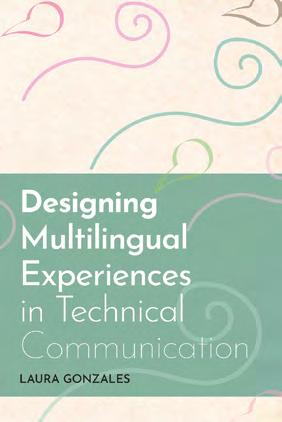
Robert Kawashima (Religion) published his monograph The Archaeology of Ancient Israelite Knowledge with Indiana University Press in 2022. The book reexamines what is generally, if misleadingly, known as the “monotheistic revolution.” Based on comparative analyses of biblical prose narrative and the myths and epics of ancient Greece and the ancient Near East, he argues that the biblical writers transformed the concepts of the divine, the human, and the cosmos, which they inherited from the surrounding cultures. Ultimately, what is distinctive about biblical narrative is not the belief in one as opposed to many gods, but the redefinition of the divine as no longer a part of nature.
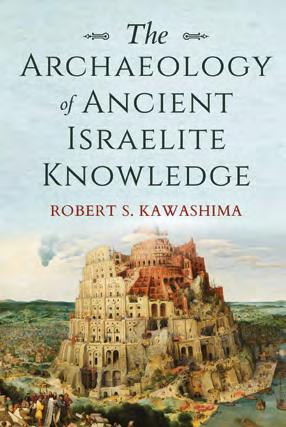
Ingrid Kleespies (Languages, Literatures, and Cultures) published a co-edited book Goncharov in the Twenty-First Century with Academic Studies Press in 2021. The volume offers a close look at the life of Ivan Goncharov (1812-91), a canonical Russian author whose career as a loyal civil servant interplayed with his significant literary output as a creative social critic to play a formative role in the development of Russian literary culture.
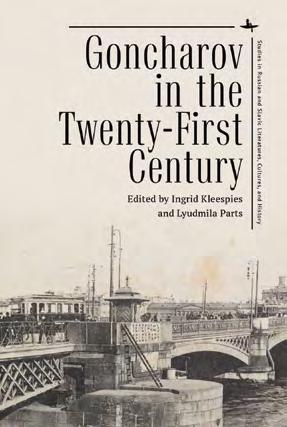
Trevor Mowchun’s (English) Metaphysics and the Moving Image is forthcoming with Edinburgh University Press in January 2023. The book explores how the medium of film inherits metaphysics, the ancient tradition of Western thought, and why it does so at the very moment in history when philosophy sought to overcome it. As the age of metaphysics comes to a close with the Nietzschean “death of God” crisis of nihilism, the emergence of film gives birth to a new absolute value, a secular re-enchantment of the world, or “the world in its own image.” Film radically transforms the metaphysical paradigm from rational speculation through concepts to mechanical revelation through images and sounds — a revelation vital to the capacity for the art of film to enlighten and enthrall.
The subvention program is instrumental in supporting quality book publications at affordable prices for humanities scholars at UF.
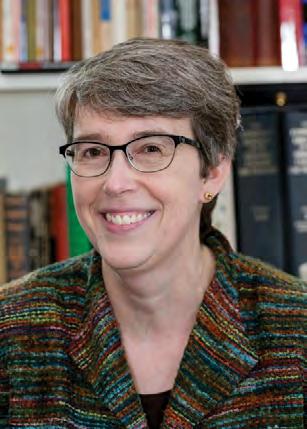
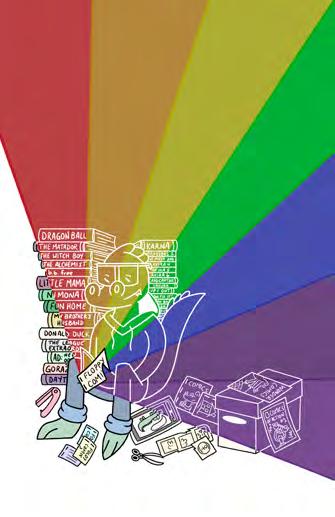
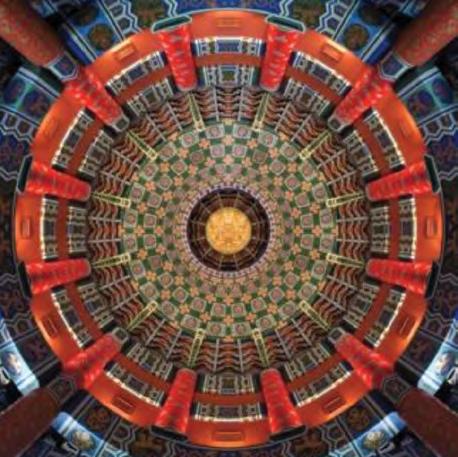
The Center for the Humanities and the Public Sphere continued its grant support for Speaker Series and Workshops in the Humanities throughout the 2021-22 academic year. Despite the pandemic and subsequent postponements of events, UF faculty, graduate students, and staff successfully organized several energizing scholarly exchanges. Programs funded by this award included the Music and Movement Speaker Series, organized by Dr. Laura Dallman Rorick (Music). The grant funded the UF Department of English’s Graduate Comics Organization’s 18th Annual Comics Conference “Exploring the In-Between: Comics in Flux,” while Prof. Stephan Kory brought the highly successful 25th Annual Southeast Early China Roundtable to UF.
LATIN
2.0:
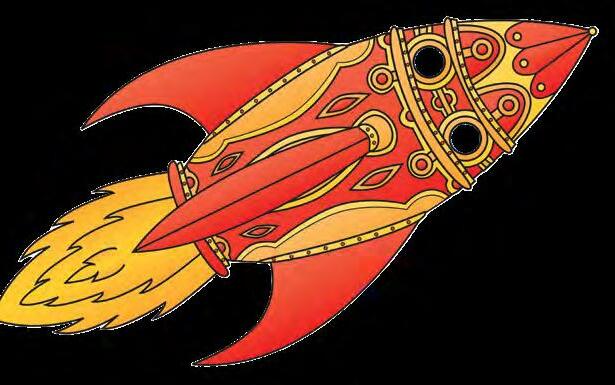
After postponing the event twice, Ginway and Harpold organized a primarily in-person two-day hybrid symposium in October 2021. The event included a reading in English and Spanish by Mexican author Gabriela Damián Miravete with an audience of undergraduate and graduate students, professors from UF, and members of the public. The opening keynote by J. Andrew Brown (Washington University in St. Louis) provided a survey of changes in the field of Latin American Science
Fiction Studies from 2005 to the present.
Alfredo Suppia (UNICAMP) and Emily Maguire (Northwestern University) presented virtually on environmental themes in Brazilian film and ecological apocalypse in Cuba, respectively.
Pablo Brescia (University of South Florida) presented on the politics of posthumanism in Latin America, followed by David Dalton (University of North Carolina at Charlotte) on environmental activism in the theatre of Latinx author Cherríe Moraga. The roundtable
discussion by writers Gabriela Damián Miravete, Edmundo Paz Soldán, and Giovanna Rivero was one of the highlights. Each of the authors read a brief statement and followed up on the themes of the symposium by answering questions posed by the audience. The event closed with a keynote by author and scholar Edmundo Paz Soldán, “Ways of Narrating Environmental Crisis in Latin American Literature,” which proposed climate fiction as a new lens of analysis of the genre.
During the 2021-22 academic year, the Center for the Humanities and the Public Sphere continued its Library Enhancement Grant Program in the Humanities with the acquisition for three specific areas following competitive applications.
Dr. Brianna Anderson (English) with Brandon Murakami (English), and Dr. Brittany Kester (George A. Smathers Libraries) received a Library Enhancement Grant to acquire books expanding UF’s collection in the area of “Decolonizing the Children’s Literature Archives: Multicultural Picture Books.”
Prof. Helene Blondeau (Languages, Literatures, and Cultures) in collaboration with Prof. Rori Bloom (Languages, Literatures and Cultures) and Dr. Helene Huet (George A. Smathers Libraries) selected books and comics related to “Francophone Comics: Reimagining Contemporary Comics,” following her award.
A team of Prof. Robin Wright (Religion), Prof. Richard Conley (Political Science); Dr. Ginessa Mahar (George A. Smathers Library); and Rachel Harnett (English) focused their funding on “Collection Enhancement in Indigenous Studies.”
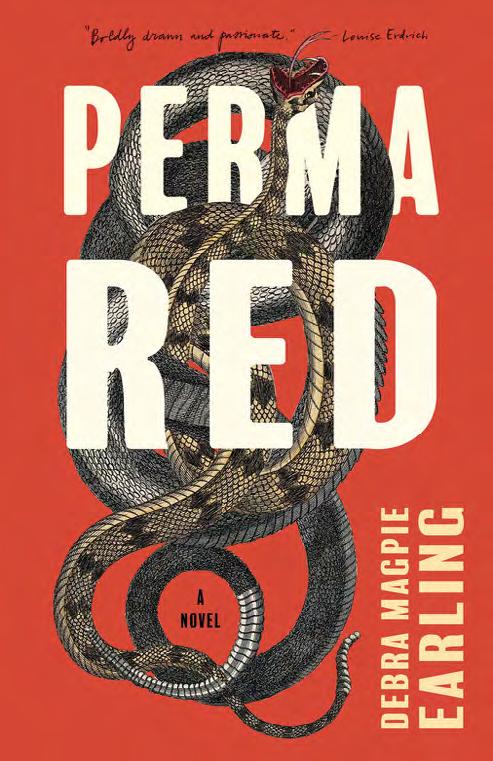
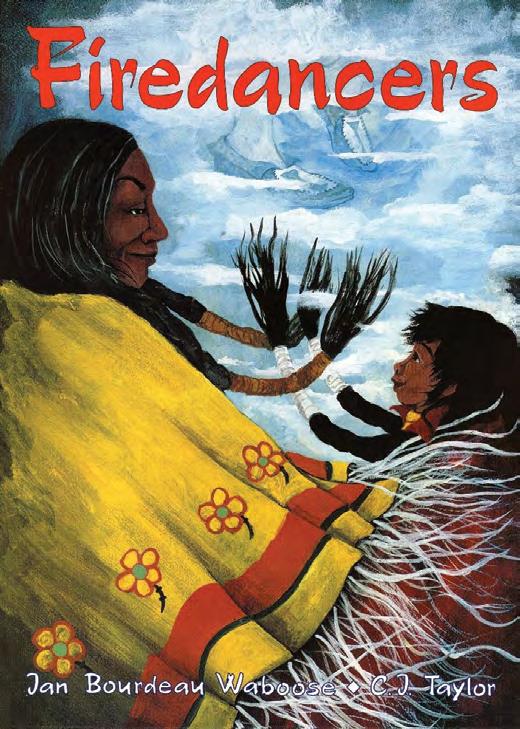
This Library Enhancement Grant program enhanced the collection in Indigenous Studies, particularly in the areas of Indigenous Literature, Films, Music and the Creative Arts; Indigenous Peoples and Contemporary Issues (Education, Politics and Policies, Law, Women and Gender Studies); and Research (Decolonizing Research and Pedagogy, Indigeneity Theory, and Methods). These additional resources will support the interests and research of faculty and the graduate students and undergraduate students who work within the American Indian and Indigenous Studies program. They provide new resources for the breadth of interdisciplinary fields that intersect within the humanities and social sciences.

In 2022, Dr. Lauren Burrell Cox and Dr. June Ke, from the UF Center for the Humanities and the Public Sphere and the University of California Humanities Research Institute, respectively, released Under Review: Rethinking Humanities Graduate Education, a podcast that examines humanities graduate education to amplify graduate students’ perspectives.
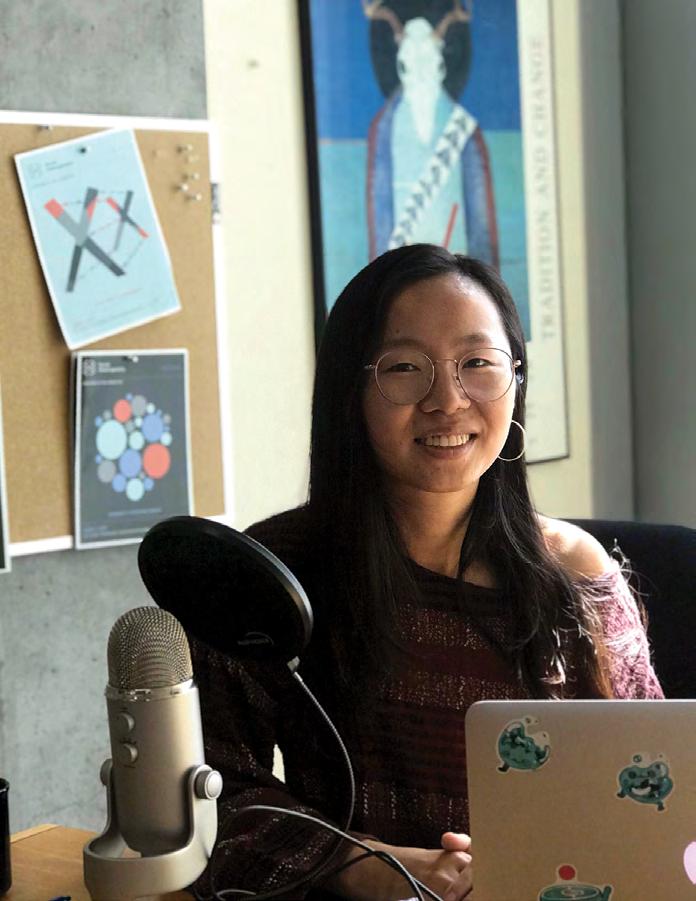
The podcast hosts met in the summer of 2020 at the National Humanities Center Podcasting Institute, which was held virtually. After they were assigned to the same project group during the institute, Cox and Ke remained in touch, connecting over their shared interests in graduate education reform and documentary film. In summer of 2021, they began to collaborate virtually to inaugurate a podcast about humanities graduate education. Thus, Under Review was born.
The six-episode series addresses the topics of prestige, labor, collaboration, mental health, education reform, and the role of humanities centers. Cox and Ke interviewed a range of guests for the series including ACLS President
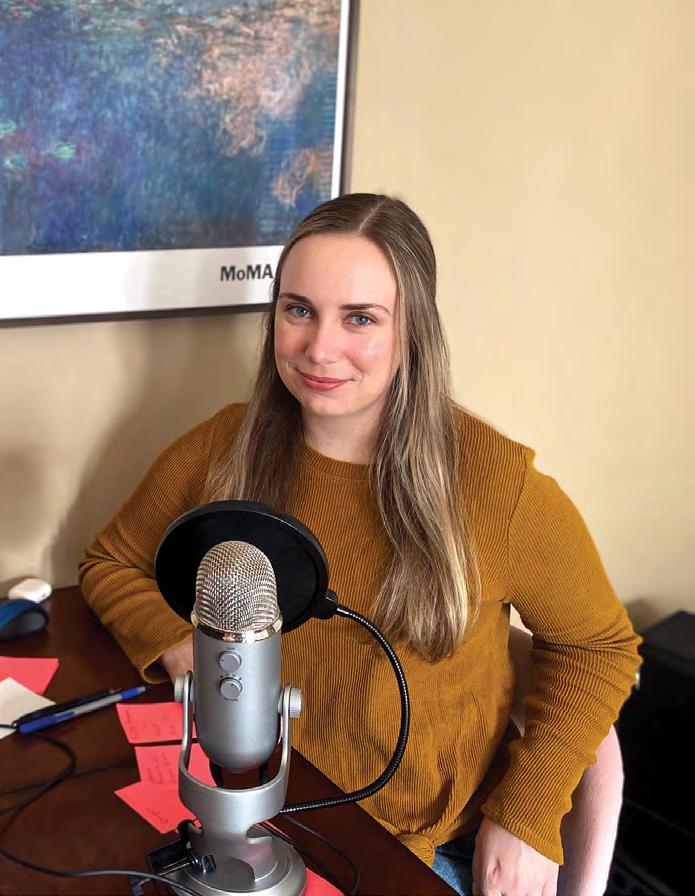
Andy Mink. Cox and Ke believe that Ph.D. professionalization should include openness to a variety of careers and that discussions of career diversity must be embedded in larger discussions of contingency, educational reform, and racial and socioeconomic diversity. The episodes delve into pressing issues such as the tenure-track jobs crisis, economic outcomes for humanities
Ph.D.s, future directions for graduate education, and professional development that accounts for diverse paths and the current realities of the job market. Under Review serves as a resource for graduate students in the humanities to gain a sense of empowerment as they navigate the academy and take the next steps in their careers.
In 2022-23, the Center for the Humanities and the Public Sphere will continue and conclude its multi-year series “Rethinking the Public Sphere,” with its fourth and final installation presenting on Public Humanities. We began Fall 2022 with the postponed visit by Brent Leggs (Executive Director, African American Cultural Heritage Action Fund) who lectured on preserving African American culture heritage on the national level and engaged in a conversation about Gainesville on a local level, as well. Our second visit in fall semester featured Prof. Barry Lam (University of California, Riverside) who presented on philosophy in the public sphere and offered a workshop on podcasting. In spring semester 2023, Nicholas Allen (Director, Willson Center, University of Georgia) will present on “Public Humanities as Environmental Humanities.”
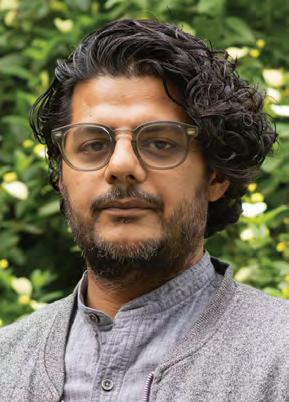
Anirban Gupta-Nigam comes to UF from the University of California Humanities Research Insitute at the University of California, Irvine, (UCHRI) where he conducted research, developed, and managed a $750,000 Andrew W Mellon-funded initiative on a vision of the liberal arts for the 21st century as a Postdoctoral Scholar. He was previously a Graduate Researcher at UCHRI. He has a 2018 Ph.D. in Visual Studies from the University of California, Irvine with a dissertation titled “Other Frontiers: Administrative Media and Intimate Domains of American Settler Futurity.” Prior to his Ph.D., Dr. Gupta-Nigam received a MPhil in Film Studies from the School of Arts & Aesthetics at Jawaharlal Nehru University, Delhi with a thesis entitled “Forensic Imaginaries: Media as Image and Apparatus in Contemporary India.”
SARA AGNELLIAs Assistant Director for Graduate Engagement, Dr. Sara Agnelli aims at supporting graduate students in the humanities to broadly envision their own career paths in many exciting fields, both in academia and beyond. In collaboration with humanities faculty and graduate coordinators, Dr. Agnelli will develop a series of programs, workshops and events to expand graduate training in the humanities.
Dr. Agnelli is a classical philologist by training, an interdisciplinary researcher and mentor by profession, and a committed humanist at heart with degrees in Classics from the Catholic University in Milan (B.A. 2006, summa cum laude, and M.Phil. 2009), and University of Florida (Ph.D. 2016). After her doctorate, she taught for the Department of Classics and the Department of Languages, Literatures and Cultures at UF, where she had the opportunity to expand her scholarship and to work on interdisciplinary research initiatives for the university and beyond. This collaborative focus led to an interest in bridging science and the humanities, from both comparative and international perspectives.
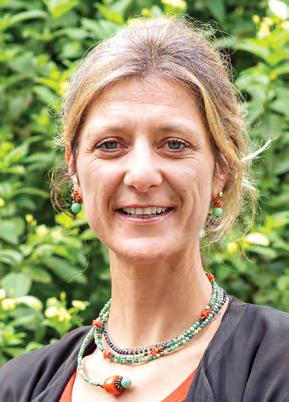
For an up-to-date list of events and event details, please visit:
HUMANITIES.UFL.EDU/EVENTS
KEEP YOUR EYE ON THE HUMANITIES CENTER CALENDAR FOR THE FOLLOWING SPONSORED EVENTS TO BE HELD DURING THE 2022-23 ACADEMIC YEAR:
Let’s Talk! Bilingualism as Human Health Capital Neurolinguistic, Social, and Educational Variability Prof. Eleonora Rossi (Linguistics) with Prof. Jorge Valdés Kroff (Spanish)
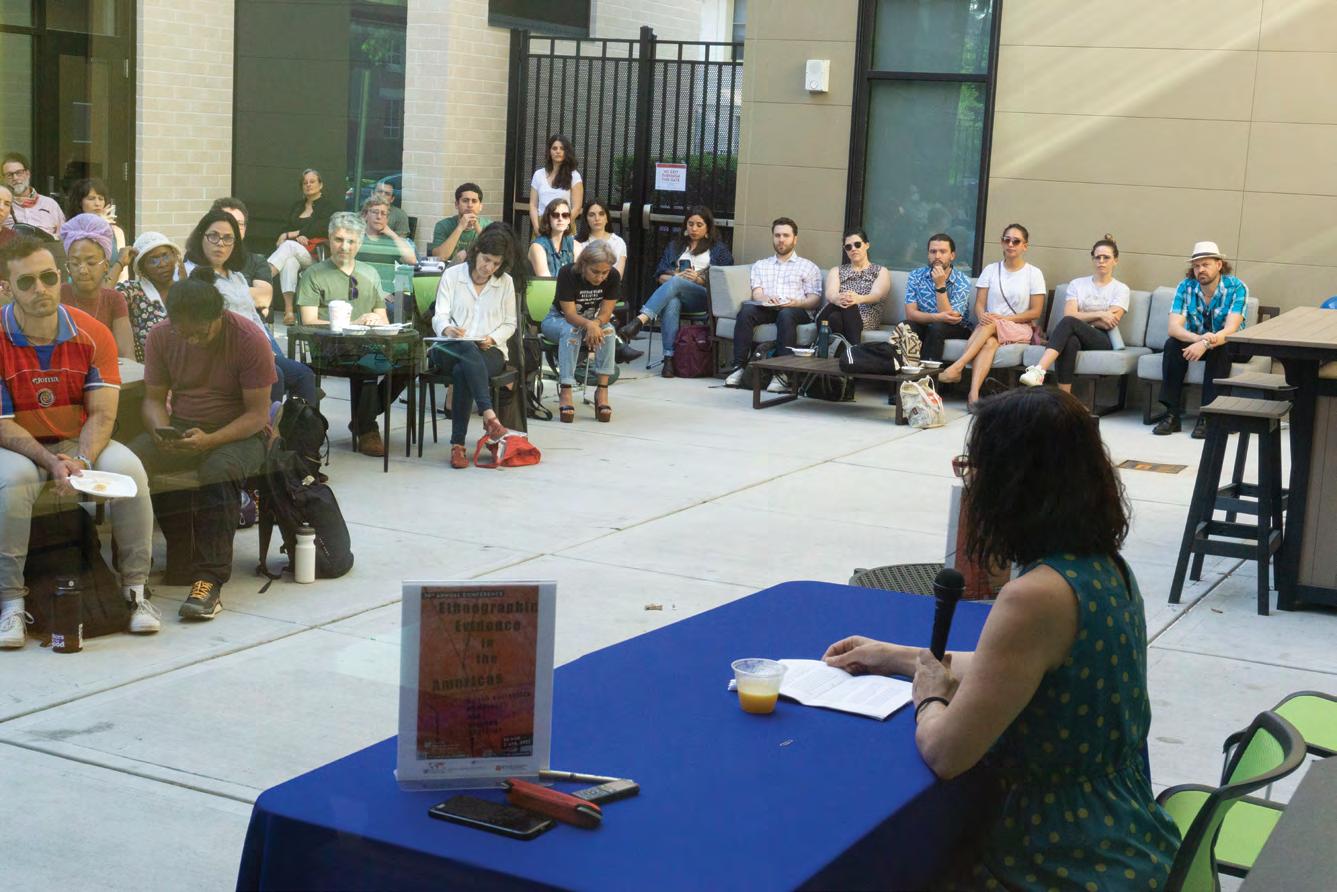
Medicine and Race: Yellow Fever and Slavery in the Western Hemisphere Nina Stoyan-Rosenzweig, (Health Science Center Libraries)
Deborah Willis - Posing Beauty in African American Culture Eric Segal (Harn Museum)
How to Carve an Ancient Statue: The 3-Caliper Method Velvet Yates (Classics)
THE CENTER FOR THE HUMANITIES AND THE PUBLIC SPHERE THANKS ITS FRIENDS FOR THEIR GENEROUS GIFTS THAT SUPPORT OUR WORK ON A DAILY BASIS:
Margaret and Robert Rothman
Susan and Warren Tedder
Harold A. and Matilda J. Gokey
David Yulee Jerome A. Yavitz W. Waldo Neikirk
J.D. Smith Jr. and Flo Smith
Jeanne Street and Cliff Dopson
Jennifer and Michel Ramey
Richard and Cheryl Roberts Abhimanyu Lokesh and Aimee Green
Sophia Krzys Acord and Leslie Murray
Maya Stanfield-Mazzi and Manuel Mazzi
Shifra Armon and William Little
Robert Neil Solomon
IN THE 2020-21 ACADEMIC YEAR, PRIVATE SUPPORT ENABLED US TO OFFER 13 DIFFERENT INTERNAL GRANT COMPETITIONS AND GIVE 33 INDIVIDUAL AWARDS TO FACULTY, STUDENTS, AND MEMBERS OF THE PUBLIC.
The Rothman Faculty Summer Fellowship
The Tedder Family Doctoral Fellowship
Virtual Ph.D. Student Winter Residency at the National Humanities Center
2020 National Humanities Center Virtual Winter Podcasting Institute for Ph.D. Students
Library Enhancement Program in the Humanities
Virtual Manuscript Review Workshops
Support for Workshops and Speaker Series in the Humanities
Programs in the Public Humanities Full Proposal
Reading Groups in the Humanities
Summer Residency for Ph.D. Students at the National Humanities Center
Summer Podcasting Institute for Faculty at the National Humanities Center Publication Subventions
THE SUSTAINABILITY OF THE CENTER FOR THE HUMANITIES AND THE PUBLIC SPHERE, OUR PROGRAMMING, AND OUR ABILITY TO MAKE FUTURE AWARDS DEPENDS ON SUPPORT FROM FRIENDS LIKE YOU.
For more information on highlighted funds and how you can make an impact, please visit humanities.ufl.edu/support-us.
Contributions by check can be made to the Center at any time. Simply send your check made payable to “UF Foundation” with “Center for Humanities” referenced in the memo to UF CLAS Development, PO Box 117300, Gainesville, FL 32611.
To learn more about the various ways you can make a gift including pledges, matching gifts, and a variety of planned giving opportunities, please visit advancement.clas.ufl.edu or contact Steve Evans, Executive Director of Advancement at (352) 273-3704 or sevans3@ufl.edu.
The University of Florida Foundation, Inc. is a 501(c)3 organization; therefore, your gift may be eligible for a charitable income tax deduction.